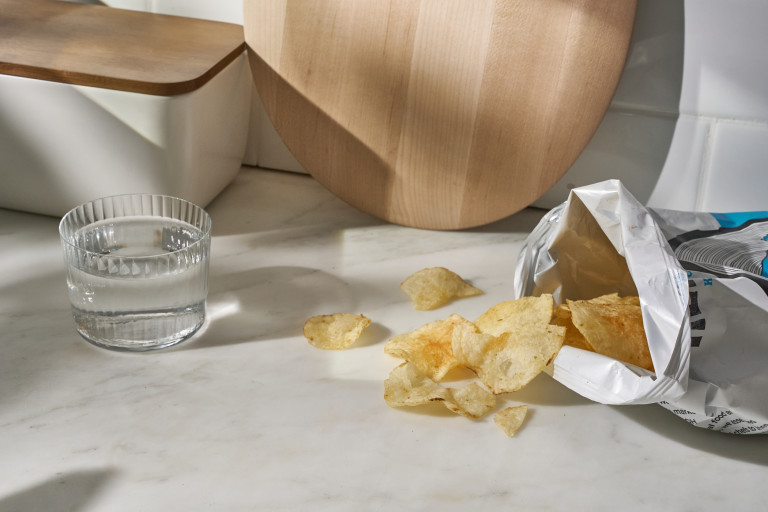Causes of Gas
There are several reasons why you might experience gas, from habits that cause you to gulp air to specific foods and common digestive conditions.
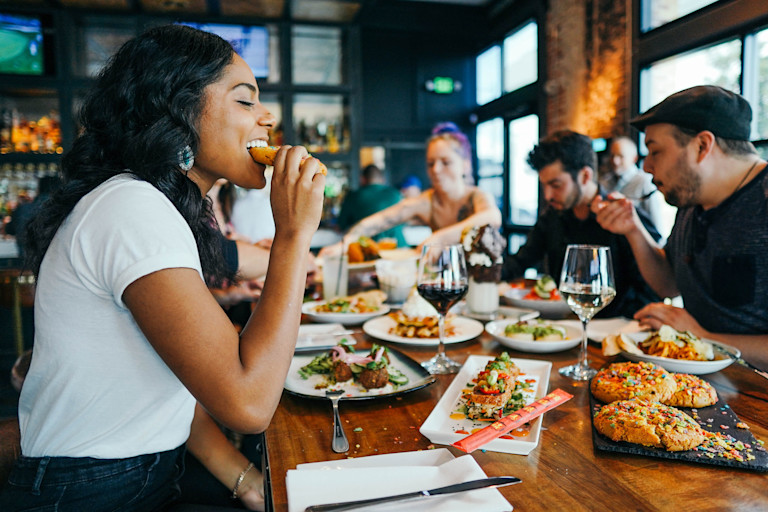
1. Eating habits are making you swallow air
Do you rush through your meal? Forget to chew your food fully before swallowing? Having a long-winded conversation during your meal? These are common habits that cause more air to be swallowed with each bite. This air buildup in the intestines can leave you feeling bloated and gassy.

2. Certain foods are making you consume excessive air
Constantly chewing gum during the day encourages air swallowing. Same with drinking carbonated beverages (we’re looking at you, yummy flavored bubbly waters). Sipping through a straw, or worse, smoking? Yep, you’re probably sipping air there, too.
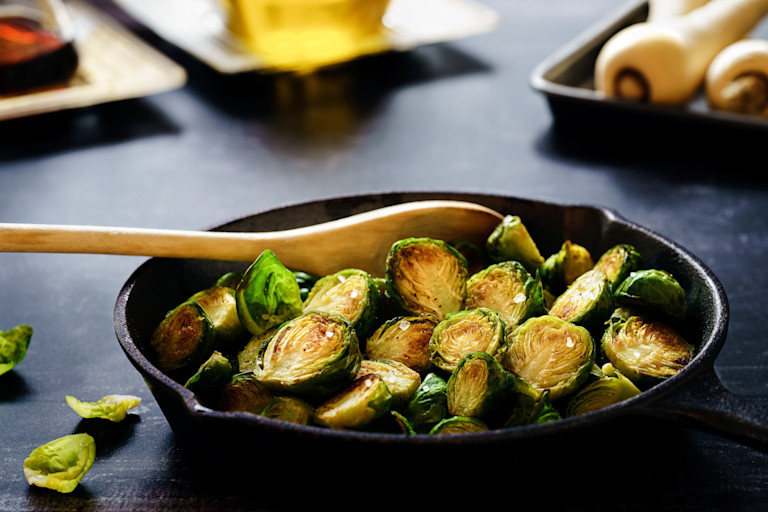
3. You’re eating lots of healthy foods
Bravo for a having a healthy, veggie-packed diet! Some of the healthiest vegetables for you—beans and cruciferous veggies like broccoli, Brussels sprouts, and cauliflower—are very rich in fiber and complex carbohydrates. This is not a bad thing, but as bacteria in your gut digests and breaks these fibers and carbohydrates down, gas is produced as a by-product. Veggies and beans are foods that dietitians encourage you to eat more of, but eating a large amount in one sitting or ramping up fiber intake too quickly can leave you with some gassiness.
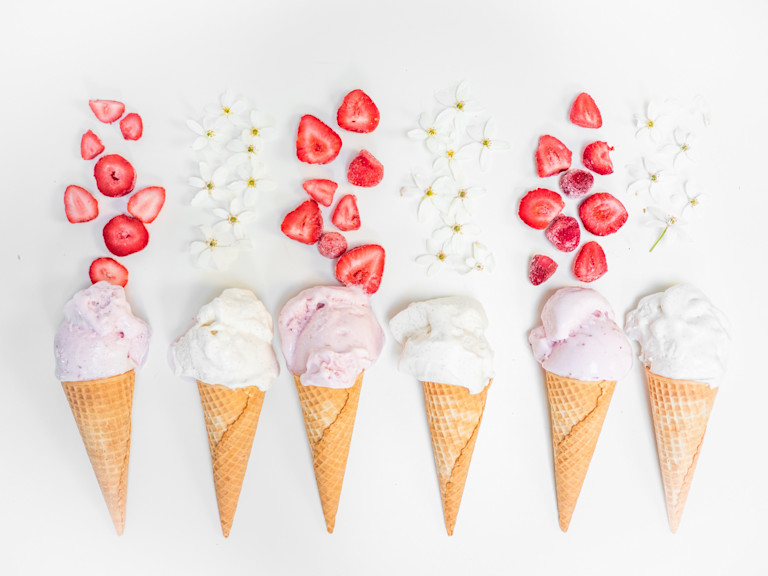
4. You’re eating foods that contain sugar alcohols
Dipping into a pint of high-protein, low-sugar ice cream at night? Breaking off a piece of keto-friendly chocolate after lunch? Chomping on sugar-free gum (a fart-producing double whammy)? These foods often contain sugar alcohols like xylitol or sorbitol, which provide a super sweet taste for zero calories, but are associated with gas, bloating, and diarrhea, according to the Encyclopedia of Food and Health2 .
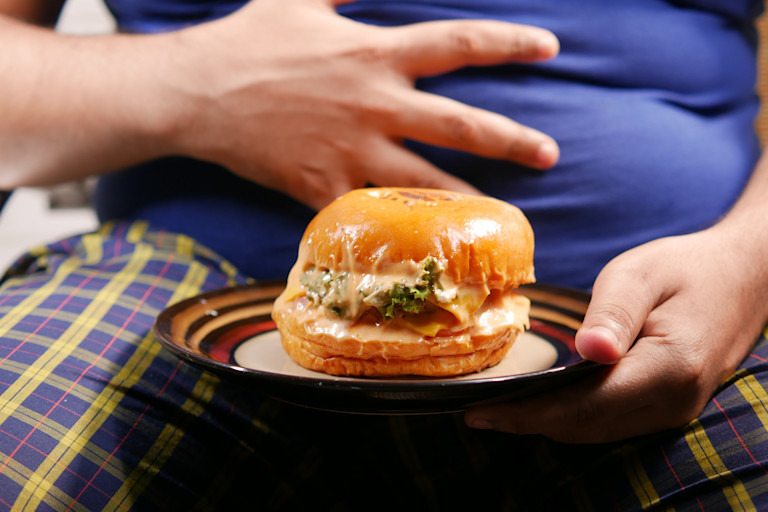
5. You have a GI condition
Excess gas can be a symptom of a number of chronic GI conditions, including ulcerative colitis, irritable bowel syndrome (IBS), or Crohn’s disease. If you have irritable bowel syndrome (IBS), you may notice bloating, stomach distention, flatulence, and a change in bowel movements (like constipation or diarrhea). Essentially those with IBS have a sensitive gut that may be triggered, in part, by eating certain foods containing carbohydrates called FODMAPs, fermentable sugars that aren’t absorbed well in the gut and cause gas. Examples of these foods3 include wheat, onions, dairy, honey, apples, and artificial sweeteners.
Lactose intolerance4 (also known as milk or dairy intolerance) is a very common disorder that can cause symptoms of gas, bloating, and diarrhea when milk products are consumed. The good news is that this disorder is easier to manage, as you can take a lactase supplement like Dairy Relief before consuming dairy products to prevent unwanted symptoms. Cabinet Health® Dairy Relief Lactaid alternative is highly effective at relieving symptoms and helping you feel better.
How to Avoid Bad Gas and Flatulence
Take Anti-Gas Medication
After meals or at bedtime, you’ll want to take an over-the-counter medication that contains simethicone, which is found in Gas Relief. This ingredient works to fight flatulence by breaking down gas bubbles in your intestines and colon. The result? Gas that is more easily passed and less bloating overall. Another plus: You can continue to eat all the foods that you know are super healthy for you, like that vegetarian black bean chili, without worrying about feeling bloated afterwards.
Learn Your Triggers
Do you feel gassy after eating artificially sweetened ice cream? Or know that a large salad will bring on the bloat? Make slight diet swaps that are specific to you. For instance, stick to a half cup of broccoli at dinner instead of a whole cup. Go for berries and cantaloupe, which are less likely to cause gas,5 instead of apples and bananas.
Change Your Eating Habits
The way you eat or drink can have a huge effect on gassiness and bloating. Here are some tips:
Really take your time when you eat a meal or snack. Try putting your fork down in between bites. This mindful eating habit can also help you enjoy your food and avoid overeating.
If you’re looking to increase the amount of fiber in your diet, make this change slowly. Your gut needs to get used to diet changes like this.
Avoid using straws, chewing on gum, or sucking on hard candies
Avoid foods and desserts with fake sweeteners, like sorbitol and xylitol
Avoid carbonated beverages
Don’t lie down right after eating. Instead, opt to take a leisurely stroll to walk off your meal.
Talk to a Healthcare Professional
If you’re experiencing extreme bloating or gas that isn’t caused by anything mentioned above or suspect that something more is going on, talk to your doctor or GI specialist. For some, gas could be an embarrassing topic to bring up, but everybody farts! Healthcare providers have heard it all and are ready to help. If you suffer from GI-related issues often, a registered dietitian can help you identify triggers, suggest lifestyle changes, and develop a specific diet plan. See ya later, gas.




